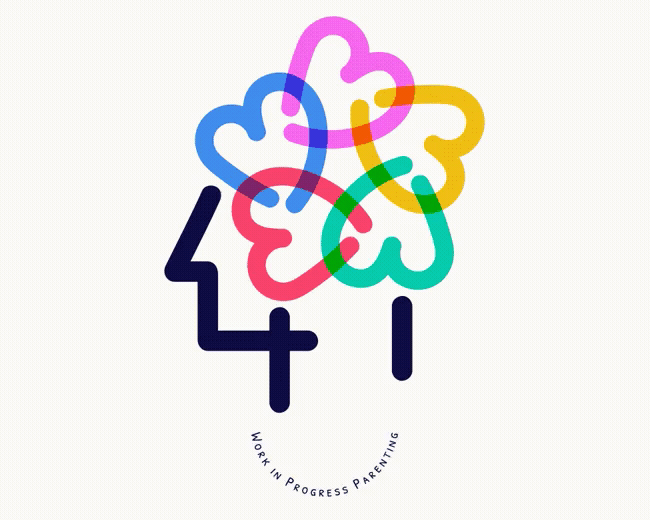How do you feel about Anger?
I’d be willing to guess that most of us have a complicated, possibly uncomfortable, relationship with anger - we may suppress it entirely, or lean on it more heavily than we would like. Generally, it’s also not an emotion we tend to receive gladly from others and our responses most likely make that clear.
Not surprisingly, our relationship with anger has its roots firmly in our childhood and how our anger was met by our caregivers. Maybe your childhood tantrums were met with a an equally angry ‘Stop that right now!’ or brushed off with a dismissive ‘You're fine, get over it."‘ Perhaps they were ignored completely, leaving you to simmer in silence and solitude, believing you were wrong, unmanageable, or unlovable for your feelings.
As parents, when our kids unleash their explosive emotions, our own suppressed pain unconsciously flares up, making their anger feel deeply personal. This can provoke countless responses within us - ranging from rage to panic, shame, disgust and much more. The amazing thing is, under the intense discomfort we may feel in these moments, there is a goldmine of self-discovery and unprecedented potential for growth.
Why does their anger feel like our problem?
Imagine a recent meltdown your child has had - make it one that really pushed your buttons, the more seemingly absurd and totally inconvenient the better. How did you react? Did you meet them with the same fury? Shut down until they stopped? Frantically tried to solve the problem with your own anger or submission just to restore the peace?
These reactions aren’t random. They are a lightning fast unfurling of an extraordinarily intricate internal web - linking our nervous system’s eternal quest for survival and safety, our unconscious beliefs and stories around anger, our inherited patterns and personal experience.
Research shows that parents frequently (but unconsciously) interpret their child's anger as a personal failure or a direct challenge to their authority, provoking discomfort and reactions they might never have anticipated. This discomfort stems from our own unresolved relationship with anger. As adults, we're wired to protect our kids from uncomfortable feelings, yet when those feelings mirror our own suppressed ones, it becomes a mirror we can't look away from.
Our reactions to our kids' anger are rarely just about them. They're a replay of the scripts we learned as children—most likely passed down through generations. Psychologists call this the intergenerational transmission of emotion regulation, where the ways our parents handled (or mishandled) our anger shape how we handle it in our own families.
If you grew up in a home where anger was explosive—expressed in slammed doors and harsh words—you might now overreact to your child's outburst, fearing it'll spiral out of control just like it did back then. Studies on parental emotion socialisation reveal that kids who experience harsh responses to their negative emotions (like anger or sadness) are more likely to develop poor emotion regulation skills themselves, thus perpetuating the pattern.
On the flip side, if anger was suppressed in your family—’Big boys/girls don't cry, suck it up’—you might now minimise your child's feelings, telling them to ‘calm down’ because that's the tool you were handed. This suppression can lead to internalised anger in kids, manifesting later as anxiety, low self-esteem, or even explosive outbursts when the pressure builds.
We may know this and have become skilled at tempering our reactions with conscious effort, knowing that we want to change our child’s experience of anger. However, we may still find that our internal responses are still ones of fear, suppressed rage, dismissal and so on. In other words, our instinct echoes what was modelled for us even if we are actively over-riding our instinct. Because we are still uncomfortable with anger.
Attachment theory adds another layer. Our early bonds with caregivers set the template for how we view emotions. If your parents responded to your anger with warmth and validation (‘I see you're really mad—let's figure this out together’), you're more likely to offer the same to your kids. But if it was met with dismissal or punishment, that inner wound may reveal itself when your child experiences the same level of frustration.
Stress responses are heritable too. When we witness anger, our cortisol spikes, eliciting the fight-or-flight mode we learned as kids. Neuroscience tells us that our reactions when we’re in fight-or-flight are rarely our most rational or controlled. Which is why we can feel as overwhelmed as our kids when they are having a full blown meltdown. Our nervous system is telling us it’s a survival situation and must be solved at all costs. It can help to zoom out in those moments of overwhelm and ask yourself…is this really a survival situation?
What if anger is a friend not a threat?
In conscious parenting, we know anger isn't the enemy and it is not our goal to get rid of anger or stop experiencing it. Anger is an essential tool, and an incredibly useful messenger. This holds true for parents and kids alike. If all behaviour is indicative of an unmet need, then what is our anger really telling us? What if we treat it as a trusted friend, rather than a threat?
Anger is often considered a ‘secondary’ emotion, most often emerging to shield us from the even more vulnerable emotions of sadness or fear (or a mix of both). It can be incredibly helpful to pause the next time you or your child is overwhelmed by anger and ask yourself - what is actually underneath this anger? What is this anger protecting us from feeling?
Uncovering these roots in our kids helps us respond with empathy, but it also shines a light on our own emotional layers and sets us on the path to progress.




